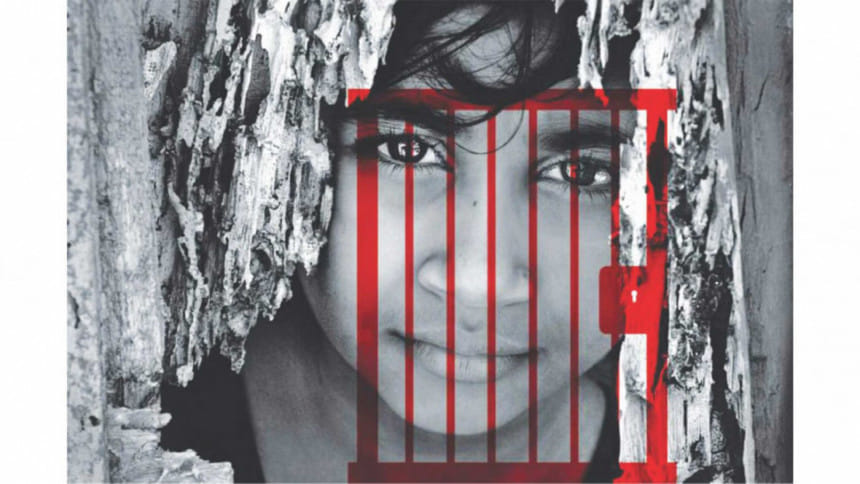Invest in assistive technology to boost economic growth

We frequently read in news that "X" achieved brilliant results by writing with legs. We appreciate "X" for their academic success, but do we have any idea how challenging and humiliating it can be to write with legs? What happens to those who have none of the limbs for writing? They are merely excluded from educational opportunities, access to information, labour market, voting rights, and other aspects of a citizen's life. If any of them had a prosthetic hand, an AI-operated hand or speech-to-text software—the amazing assistive technologies available today—the situation would be different.
Assistive Technology (AT) is the application of organised knowledge and skills related to assistive products, including systems and services. AT has a profoundly positive impact on the participation and inclusion of people with disabilities. By offering access to knowledge, AT enables people to learn and stay informed. It is clear from a variety of experiences that AT is more than just a tool; rather, it is a catalyst that helps people overcome barriers and live independent, productive, and meaningful lives.
For those with impairments, the elderly, and those with health conditions, access to assistive technology is a human right recognised by international laws. The Committee on the Rights of Persons with Disabilities (CRPD) obliges states parties to ensure the full inclusion and participation of persons with disabilities in all aspects of life. The CRPD has imposed responsibilities upon states parties to promote the use, research, development, production, and distribution of AT, making it affordable and available for anyone who needs it.
Wheelchairs, glasses, crutches, hearing aids, screen readers and a few other assistive products are popular in Bangladesh, while over 40,000 assistive products (AP) are available in the world. According to the global reports on Assistive Technology by WHO and UNICEF, one in three people—or more than 2.5 billion people globally—need at least one assistive product. The significant unmet global need for AT is concentrated in low- and middle-income countries (LMICs). Only 5-15 percent of people who require AT have access to it in LMICs. This huge unmet need not only restricts the participation of people with disabilities in society, but also negatively impact the global and national economy. According to the reports, providing AT to all who need it would yield more than $10 trillion in economic benefits over the next 55 years.
How is Bangladesh viewing assistive technology? Right now, no comprehensive policy framework exists in the country to guarantee that AT is available, accessible, affordable, and acceptable to all people with disabilities. We do not yet have a strategy to meet the unmet needs progressively and generate money from it. The available assistive products and services are of poor quality, financially inaccessible, socially unacceptable, and unadaptable. The distribution system is very unsatisfactory, with devices not being available in hard-to-reach areas. The provision is insufficient, as the government provides products and services from 103 support centres, when we need to make them available at the doorsteps. There is no designated authority to monitor the quality of the assistive products and services available. There is a huge crisis with skilled service providers, technicians, and maintenance. AT for persons with hearing and/or visual impairment, psychosocial disabilities and intellectual disabilities are almost unavailable. Last but not least, a lack of awareness and understanding about AT further restricts the access significantly.
Being a state party to the CRPD, Bangladesh is under obligation to take measures to ensure AT for people with disabilities. The Rights and Protection of Persons with Disabilities Act, 2013 and the National Action Plan for the implementation of this law mentioned that the government will undertake measures to increase production, reduce price by tax exemption, encourage human-centric design and research and ensure quality of locally produced and imported mobility aids, but these are yet to be translated into action. Moreover, the law does not speak about the assistive technology for all disability constituencies, which is ultra vires CRPD. The most terrible thing is that in Bangladesh, assistive technology is still viewed from medical perspective, when as a state party to the CRPD, it is mandatory to view AT from human rights perspective as part of a broader strategy for social inclusion. A rights-based perspective focuses on societal change, rather than "fixing" individuals through assistive technology, aligning with the principles of the CRPD.
Against this backdrop, the civil society organisations including organisations of persons with disabilities (OPDs) should immediately undertake awareness-raising through advocacy, seminars and events on assistive technology, targeting policymakers, ministries, manufacturers, and distributors of AT.
Investing in AT can have a transformative impact on people's well-being, which makes sound economic sense for the government. Investment in the provision of four assistive products—hearing aids, prostheses, eyeglasses, and wheelchairs—results in a return on investment (ROI) of 9:1 (ATscale). Hence, the government should consider allocating sufficient funds for production, import, provision, capacity-building and service delivery systems to unlock the potential of persons with disabilities and thereby enhance the country`s economic growth. The government must ensure meaningful consultation with and participation of AT users, persons with disabilities and their representative organisations in budget planning, formulation, and implementation thereof.
ATscale, the global partnership on AT hosted by UNOPS, and its partners are observing the first-ever World Day for Assistive Technology today (June 4), with the goal to bring attention to the issue and encourage action as part of the Unlock The Everyday campaign. We urge the government to allocate enough money in the upcoming national budget for FY2024-25 to enhance everyone's access to AT.
Rejaul Siddiquee is advocate at the Supreme Court of Bangladesh.
Views expressed in this article are the author's own.
Follow The Daily Star Opinion on Facebook for the latest opinions, commentaries and analyses by experts and professionals. To contribute your article or letter to The Daily Star Opinion, see our guidelines for submission.

 For all latest news, follow The Daily Star's Google News channel.
For all latest news, follow The Daily Star's Google News channel. 








Comments